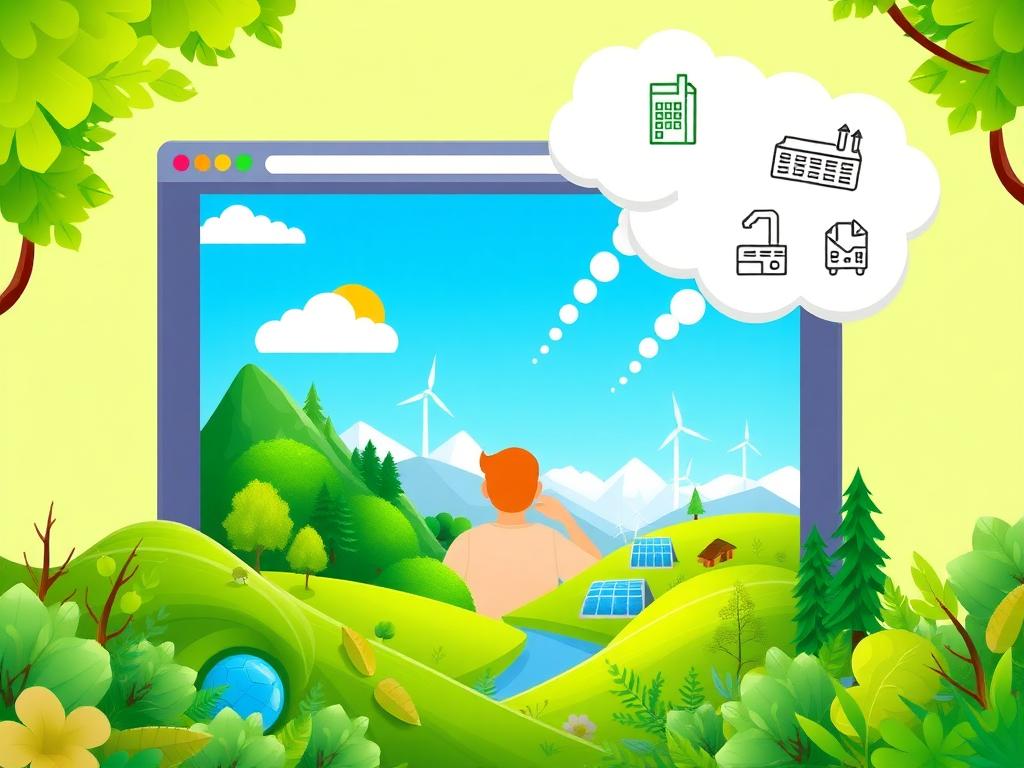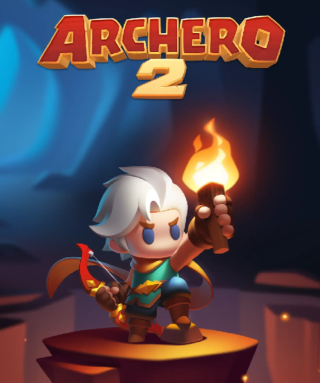Browser Eco-Simulations: How to Save the Planet Virtually
In an era increasingly defined by urgent environmental challenges, from climate change and biodiversity loss to resource depletion and pollution, the call to action resonates louder than ever. While grand policy shifts and technological breakthroughs are essential, the journey towards a sustainable future also hinges on widespread understanding, empathy, and collective engagement. Enter browser eco-simulation games – a rapidly evolving genre that offers a unique, accessible, and often profoundly impactful way to explore the complexities of our planet’s ecological systems. These aren’t just mere diversions; they are dynamic, interactive learning environments where players can experiment with virtual planet saving strategies, witness the consequences of their decisions firsthand, and cultivate a deeper appreciation for the intricate balance of nature. From managing virtual ecosystems to designing sustainable cities and even combating digital pollution, these no download green games are democratizing environmental education, making it engaging and available to anyone with an internet connection. As we approach browser eco 2025, the sophistication and reach of these platforms are poised for exponential growth, making them indispensable tools in the global effort to foster a more conscious and proactive generation of environmental stewards. Dive in to discover how these immersive experiences empower you to be a part of the solution, even from the comfort of your screen.
The Dawn of Digital Conservation: Why Browser Eco-Sims Matter
The concept of using games for educational purposes is far from new, but the rise of environmental simulation games has brought a critical, real-world urgency to this pedagogical approach. Unlike traditional educational methods that might rely on static texts or passive lectures, these simulations immerse players directly into complex ecological scenarios, allowing for hands-on, experiential learning. The historical trajectory of browser gaming has seen a shift from simple arcade titles to sophisticated simulation engines, capable of modeling intricate natural processes with surprising accuracy. This evolution has paved the way for a new generation of eco browser games that are not only fun but also profoundly insightful. Their accessibility is a game-changer; being no download green games means they bypass the barriers of expensive hardware or software installations. Anyone with an internet connection and a standard web browser can immediately begin their journey into virtual planet saving. This low barrier to entry significantly broadens their reach, enabling global participation in environmental learning.
The true power of these simulations lies in their ability to make abstract environmental concepts tangible and immediate. Players are confronted with direct feedback loops – a policy decision to boost industrial output might lead to increased pollution, visibly impacting the virtual ecosystem’s health. Conversely, investing in renewable energy could see the air quality improve and biodiversity flourish. This direct cause-and-effect demonstration is far more impactful than theoretical discussions. Moreover, environmental simulation games foster systemic thinking. Players quickly learn that environmental issues are rarely isolated; a problem in one area can cascade, affecting multiple interconnected systems. This holistic perspective is crucial for understanding the real-world complexity of climate change and conservation. As we look towards browser eco 2025, we anticipate even more sophisticated models that integrate real-time data, allowing for simulations that dynamically reflect current environmental trends and challenges. The educational value extends beyond mere facts; it cultivates a problem-solving mindset, encouraging players to experiment, fail, adapt, and ultimately, succeed in their mission to save the planet games, albeit virtually. They are a powerful tool for raising awareness and inspiring proactive engagement with environmental issues, demonstrating that every decision, even a virtual one, has consequences.
Core Mechanics of Virtual Planet Saving
At the heart of any compelling browser eco-simulation game lies a sophisticated set of mechanics designed to mirror the delicate balance of real-world ecosystems and human societies. Understanding these core components is key to appreciating the depth and educational value offered by these eco-friendly games. The fundamental challenge often revolves around Resource Management. Players must meticulously manage finite resources like water, energy, food, and raw materials. This involves not only extraction and consumption but also sustainable harvesting, efficient allocation, and the development of renewable alternatives. For instance, a game might require balancing agricultural output with water conservation, or transitioning from fossil fuels to solar and wind power without disrupting the virtual economy. This aspect teaches the critical concept of carrying capacity and the finite nature of Earth’s resources.
Equally vital is Biodiversity Management. Many environmental simulation games challenge players to protect and restore natural habitats, reintroduce endangered species, and combat invasive ones. This often involves understanding trophic levels, symbiotic relationships, and the impact of human development on ecosystems. Success in this area directly contributes to the overall health and resilience of the virtual environment, providing a compelling demonstration of why biodiversity is crucial for virtual planet saving. Simultaneously, Pollution Control is a constant battle. Whether it’s air pollution from factories, water contamination from runoff, or soil degradation from intensive farming, players must devise and implement strategies to mitigate environmental damage. This can range from investing in cleaner technologies and waste treatment facilities to promoting sustainable agricultural practices and reducing consumption. These challenges highlight the pervasive nature of pollution and the necessity of proactive measures.
Perhaps the most pressing mechanic in contemporary browser eco 2025 simulations is Climate Change Mitigation. Games now model the complexities of greenhouse gas emissions, global warming, and their cascading effects. Players might need to implement carbon capture technologies, transition entire industries to carbon-neutral operations, or even manage the aftermath of extreme weather events. These mechanics force players to confront the urgency of climate action and explore various solutions, often with long-term consequences that demand strategic foresight. Finally, Economic and Social Factors are inextricably linked. A sustainable future isn’t just about environmental purity; it’s about balancing ecological health with the needs of a thriving society. Players often need to manage population growth, ensure equitable access to resources, address social inequalities, and maintain economic stability, all while pursuing environmental goals. These interconnected mechanics make online environmental games incredibly rich and realistic, demonstrating that saving the planet is a multifaceted challenge requiring interdisciplinary solutions. They teach that true sustainable eco browser experiences demand a comprehensive approach to global well-being.
Navigating Climate Challenges in a Digital World
The virtual worlds of browser eco-simulation games are not merely idyllic canvases for building green utopias; they are increasingly designed to replicate the formidable and often daunting climate challenges facing our real world. This direct engagement with simulated crises is a powerful pedagogical tool, allowing players to grapple with concepts that often feel abstract or distant in daily life. Imagine a game where your coastal city faces rising sea levels, requiring massive investments in resilient infrastructure or strategic population relocation. Or perhaps a simulation where prolonged droughts threaten agricultural output, forcing you to innovate in water conservation and alternative food sources. These scenarios are not hypothetical in these save the planet games; they are the core gameplay loops, demanding immediate and thoughtful responses.
Player choices in these environmental simulation games carry immediate and visible consequences. Building a coal power plant might provide a quick energy boost but will rapidly degrade air quality and increase global temperature readings within the game, potentially triggering extreme weather events like superstorms or wildfires. Conversely, investing heavily in geothermal energy or reforestation might initially slow economic growth but ultimately lead to a healthier, more stable environment for your virtual citizens. This direct feedback mechanism powerfully illustrates the long-term impacts of short-sighted decisions and the benefits of sustainable planning. It encourages players to think systemically, understanding that every action has ripples across the entire ecosystem. This systemic thinking is paramount for effective virtual planet saving in the real world.
Many advanced browser eco 2025 simulations integrate complex scientific models, allowing players to explore various climate mitigation and adaptation strategies. They might simulate carbon cycles, atmospheric chemistry, and ocean currents, offering a nuanced understanding of how different interventions affect the global climate. The games often feature research and development trees, where players can unlock new technologies like advanced renewable energy solutions, genetically modified crops resistant to climate shifts, or innovative waste-to-energy systems. This fosters an understanding of the scientific and technological advancements required to combat climate change. Furthermore, some sustainable eco browser experiences even introduce geopolitical elements, requiring players to engage in virtual diplomacy, negotiate international agreements on emissions reductions, or manage global supply chains under environmental stress. These layers of complexity transform what might seem like simple eco browser games into powerful laboratories for exploring the multifaceted solutions needed for our planet’s future, encouraging players to not only react to crises but also proactively design for resilience and sustainability.

Top Browser Eco-Simulations: Your Virtual Green Thumb
The landscape of browser eco-simulation games is diverse and ever-expanding, offering a plethora of experiences that cater to different interests and learning styles. From micro-management of individual ecosystems to grand-scale planetary stewardship, these free environmental sims online provide invaluable insights and enjoyable gameplay. Here, we highlight 15 exemplary titles (or conceptual archetypes representing common mechanics) that embody the spirit of virtual planet saving, each offering unique challenges and practical conservation tips. While some are real games, others represent the ideal browser-based eco-simulation for 2025, offering a glimpse into what’s available and what’s possible.
Simulating Ecosystems and Biodiversity
These games focus on the intricate web of life, challenging players to protect and restore natural habitats.
- 1. EcoHarvest (Conceptual): This eco browser game puts you in charge of a struggling agricultural region. Your goal is to transition from conventional, resource-intensive farming to sustainable practices. You manage crop rotation, water allocation, and soil health.
- Conservation Tip: Implement diversified cropping systems and precision irrigation to reduce water consumption and improve soil vitality. Learn more about strategic gameplay in simulations.
- Climate Challenge: Dealing with unpredictable weather patterns like droughts or floods, forcing adaptation of crop types and farming techniques.
- 2. Wildlands Keeper (Conceptual): A sprawling free environmental sims online experience where players are tasked with rewilding degraded landscapes. You introduce keystone species, manage invasive plants, and build corridors for wildlife migration.
- Conservation Tip: Prioritize native species reintroduction and habitat connectivity to boost biodiversity.
- Climate Challenge: Battling habitat fragmentation caused by human encroachment and the increasing intensity of wildfires due to climate change.
- 3. Ocean Guardian (Conceptual): Dive into the depths with this online environmental game that places you in charge of a marine protected area. Combat plastic pollution, manage sustainable fishing quotas, and restore coral reefs.
- Conservation Tip: Implement strict fishing regulations and participate in virtual clean-up operations to reduce marine debris.
- Climate Challenge: Mitigating the effects of ocean acidification and rising sea temperatures on fragile coral ecosystems.
Mastering Energy and Resource Management
These simulations put players at the helm of energy grids and resource supply chains, emphasizing efficiency and renewables.
- 4. Solar City Builder (Conceptual): As the mayor in this browser eco 2025 title, your mission is to transform a sprawling metropolis into a net-zero city. Develop renewable energy infrastructure, optimize public transport, and promote green buildings.
- Conservation Tip: Invest heavily in solar, wind, and geothermal energy to phase out fossil fuels. Encourage compact, walkable urban design.
- Climate Challenge: Managing peak energy demand during extreme heatwaves while ensuring grid stability.
- 5. WaterWorks Manager (Conceptual): This no download green game challenges you to manage a city’s water supply in an increasingly arid region. Build desalination plants, implement water rationing, and develop innovative water recycling programs.
- Conservation Tip: Promote water-efficient appliances and landscape design among virtual citizens. Invest in greywater recycling.
- Climate Challenge: Dealing with prolonged droughts and unpredictable rainfall patterns, forcing difficult resource allocation decisions.
- 6. Recycle Empire (Conceptual): Take control of a waste management company in this eco-friendly game. Develop advanced recycling facilities, educate the public on waste reduction, and explore waste-to-energy technologies.
- Conservation Tip: Implement robust sorting programs and incentivize composting to drastically reduce landfill waste.
- Climate Challenge: Reducing methane emissions from landfills and finding sustainable end-of-life solutions for difficult materials.
Battling Climate Change and Pollution
These save the planet games directly tackle the grand challenges of climate change and pervasive pollution.
- 7. Carbon Footprint Challenge (Conceptual): An individual-focused save the planet game where players manage a family’s daily life, making choices about diet, transport, consumption, and home energy use to reduce their carbon footprint.
- Conservation Tip: Opt for plant-based meals, use public transport or cycling, and reduce energy consumption at home.
- Climate Challenge: Understanding how individual choices, aggregated, contribute to or alleviate global emissions.
- 8. Green Future (Conceptual): A geopolitical environmental simulation game where you lead a nation in international climate negotiations. Balance economic growth with ambitious emission reduction targets, develop climate aid, and respond to global environmental crises.
- Conservation Tip: Push for international agreements on emissions trading and technology transfer to developing nations.
- Climate Challenge: Achieving global consensus on climate action despite varying national interests and economic capacities.
- 9. Air Purity Quest (Conceptual): In this best eco game, you are responsible for cleaning up the air quality in a heavily industrialized region. Implement regulations, invest in scrubbers and filters, and transition industries to cleaner production methods.
- Conservation Tip: Advocate for strict emission standards and promote the adoption of advanced pollution control technologies.
- Climate Challenge: Dealing with transboundary air pollution and the economic resistance to costly environmental upgrades.
Urban Planning and Sustainable Development
Focusing on the built environment, these titles explore how cities can become centers of sustainability.
- 10. Eco-Metropolis (Conceptual): A city-builder simulation where every zoning decision, infrastructure project, and policy choice impacts the city’s environmental score. Build parks, introduce bike lanes, and foster green industries in this browser eco-simulation game.
- Conservation Tip: Prioritize mixed-use development and accessible green spaces to reduce commuting and improve urban ecology.
- Climate Challenge: Countering urban heat islands and managing increased storm runoff due to climate change.
- 11. CommuniTree (Conceptual): This virtual planet saving game centers on community-level initiatives. Organize community gardens, set up recycling hubs, and initiate local clean-up drives, fostering collective action.
- Conservation Tip: Empower local communities to take ownership of environmental projects and build resilience from the ground up.
- Climate Challenge: Building community resilience against localized impacts of climate change, like food insecurity or water shortages.
- 12. Waste Not, Want Not (Conceptual): A household management eco browser game where you track resource consumption, food waste, and recycling habits within a virtual family. Discover ingenious ways to reduce, reuse, and recycle.
- Conservation Tip: Practice mindful consumption, repair items instead of replacing them, and compost food scraps.
- Climate Challenge: Understanding the lifecycle emissions associated with consumer goods and the importance of reducing overall demand.
Futuristic Scenarios and Advanced Concepts
These sustainable eco browser experiences push the boundaries, exploring cutting-edge environmental solutions and speculative futures.
- 13. Terraform Alliance (Conceptual): A large-scale free environmental sims online game where players collaborate to terraform a new planet or restore a severely damaged Earth. This involves geoengineering, advanced ecosystem design, and long-term climate management.
- Conservation Tip: Explore radical carbon sequestration methods and planetary-scale atmospheric management.
- Climate Challenge: Grappling with the ethical implications and potential unintended consequences of large-scale geoengineering interventions.
- 14. Ecoventure Trails (Conceptual): An adventure-simulation hybrid where players undertake expeditions to remote corners of the virtual world to document and protect endangered species. Use camera traps, tranquilizer darts for medical aid, and engage with virtual poachers.
- Conservation Tip: Support anti-poaching efforts, establish wildlife sanctuaries, and raise awareness about species conservation.
- Climate Challenge: Protecting habitats from climate-induced shifts and extreme weather events that threaten endangered populations.
- 15. Climate Resilience Architect (Conceptual): This online environmental game focuses on adaptation rather than just mitigation. Players design and implement infrastructure projects to make cities and regions resilient to future climate impacts, such as storm surge barriers, elevated buildings, and drought-resistant agriculture.
- Conservation Tip: Invest in green infrastructure that both mitigates environmental impact and provides resilience.
- Climate Challenge: Preparing for the inevitable impacts of climate change and building communities that can withstand future shocks.
These examples illustrate the breadth and depth of browser eco-simulation games. Whether you’re interested in micro-level resource management or macro-level climate policy, there’s a best eco game out there to help you explore the challenges and solutions for virtual planet saving. Many of these types of educational browser games are available without any download, making them incredibly accessible for anyone to start their journey into environmental stewardship.
The Psychology of Play: Why Virtual Action Leads to Real Change
Beyond their explicit educational content, browser eco-simulation games harness powerful psychological principles that can foster genuine environmental awareness and even drive real-world action. One of the most significant is Empathy and Perspective Taking. When players are directly responsible for the well-being of a virtual ecosystem or community, they develop a sense of ownership and empathy that is difficult to replicate through passive learning. Managing resources, witnessing the decline of species, or dealing with the consequences of pollution in a game can elicit emotional responses, making the abstract concept of “environmental degradation” personal and immediate. This feeling of responsibility is a powerful motivator for virtual planet saving, even if initially confined to the digital realm.
These eco browser games are also excellent trainers of Problem-Solving Skills. Environmental challenges are inherently complex, often lacking simple solutions. Simulations force players to analyze interconnected systems, anticipate consequences, and devise multifaceted strategies. There’s no single right answer, mirroring the real world. Players learn to iterate, experiment, and adapt their approaches based on feedback from the game’s dynamic systems. This iterative problem-solving process builds cognitive flexibility and critical thinking, skills directly transferable to addressing real-world environmental dilemmas. Moreover, the trial-and-error nature of gameplay removes the fear of failure often associated with real-world decision-making, encouraging bold experimentation with sustainable practices.
Perhaps most importantly, save the planet games cultivate a profound Sense of Agency. In the face of overwhelming global environmental crises, individuals often feel powerless. Environmental simulation games counteract this by providing immediate, tangible feedback on players’ actions. Successfully cleaning up a polluted river, reintroducing a species, or transitioning a city to renewable energy provides a sense of accomplishment and demonstrates that individual and collective efforts can indeed make a difference. This feeling of empowerment can translate into increased motivation for real-world environmental engagement. Furthermore, many online environmental games foster Community Building. Players often share strategies, discuss challenges, and collaborate on solutions within online forums or multiplayer modes. This shared experience reinforces the idea that environmental stewardship is a collective endeavor, strengthening social bonds around a common green goal. This collective sense of purpose, spurred by immersive sustainable eco browser experiences, is a crucial ingredient for moving from virtual wins to tangible, impactful changes in the physical world. For more on how games can sharpen minds, explore browser games that sharpen mind skills.
Beyond the Browser: Translating Virtual Wins into Real-World Impact
The true measure of success for browser eco-simulation games isn’t just how well they entertain or educate within their digital confines, but how effectively they inspire real-world action. The lessons learned and the mindsets cultivated in these eco-friendly games are designed to be transferable, serving as catalysts for tangible change. One of the most direct pathways from virtual engagement to real impact is through Advocacy and Education. Players who have navigated the complexities of virtual planet saving in a game often emerge with a deeper understanding of environmental issues. This newfound knowledge and empathy can empower them to become vocal advocates in their communities, sharing insights, correcting misinformation, and inspiring others to take environmental concerns seriously. They can use their gaming experience as a relatable entry point for discussions about climate change, conservation, and sustainability. For example, understanding resource management in a game can lead to discussions about global water scarcity or food waste in real life.
Another crucial step is Supporting Green Initiatives. Many environmental simulation games highlight the work of real environmental organizations. Players might be encouraged to explore these organizations’ websites (often through outbound links within the game or associated educational materials) and learn about ways to contribute, whether through donations, volunteering, or participating in local clean-up drives. The simulated sense of urgency and reward within the game can motivate players to seek similar fulfillment in the real world. This direct link between virtual play and real-world support helps bridge the gap from passive entertainment to active contribution. These save the planet games are, at their heart, tools for fostering active citizenship. For example, you might find yourself inspired to check out the real-world efforts of organizations like the World Wildlife Fund (WWF) or the Nature Conservancy after managing virtual wildlife.
Most importantly, browser eco-simulation games can directly influence Personal Lifestyle Changes. A player who has struggled to reduce a city’s carbon footprint in a game might become more mindful of their own energy consumption, transport choices, and dietary habits. Learning about the consequences of deforestation in a virtual forest management game might lead someone to choose sustainably sourced products. The immersive experience makes abstract concepts like “carbon footprint” or “biodiversity loss” far more concrete and relatable to daily life. Finally, these games can subtly, yet powerfully, influence Policy Influence. While individual players might not directly draft legislation, the collective understanding fostered by widespread engagement with browser eco-simulation games can contribute to a more informed public discourse. This can, in turn, create greater public pressure for policymakers to adopt sustainable policies. As we move towards browser eco 2025, the integration of real-world data and challenges in online environmental games will only strengthen this connection, making them an increasingly vital component of global environmental literacy and action. For further exploration of strategies that translate virtual success to real life, you might find insights in advanced browser game strategies. Consider how the principles discussed by the United Nations Environment Programme (UNEP) align with in-game environmental policies.
The Future of Browser Eco-Simulation Games: Innovations for 2025 and Beyond
The trajectory for browser eco-simulation games is one of accelerating innovation, driven by advancements in web technology and a growing demand for impactful, accessible digital experiences. As we gaze towards browser eco 2025 and beyond, several key trends are poised to revolutionize how we interact with virtual planet saving simulations. One significant area of growth will be AI Integration for More Dynamic Simulations. Future games will likely leverage advanced AI to create more complex, adaptive, and realistic environmental models. This means NPCs (Non-Player Characters) representing virtual citizens or wildlife will react more intelligently to environmental changes, creating emergent behaviors that make the simulation feel more alive and challenging. AI could also be used to generate dynamic climate scenarios based on real-world data, providing players with up-to-date and highly relevant challenges. This will elevate environmental simulation games beyond static models to truly living, breathing digital ecosystems, drawing inspiration from the scientific data presented by entities like NASA Climate Change.
Another fascinating frontier is the potential for Blockchain for Tracking Impact/Incentives. While still nascent in browser gaming, blockchain technology could introduce verifiable “green credentials” within games or even link in-game achievements to real-world impact. Imagine earning tokens for successfully managing a virtual forest, which could then be used to support real-world reforestation projects through a transparent, blockchain-verified donation system. This direct connection could provide powerful incentives for players and foster a sense of collective accountability in save the planet games. Furthermore, VR/AR Immersion for Heightened Realism will likely become more prevalent. While full VR setups aren’t browser-native yet, browser-based AR experiences are already possible. Future online environmental games could allow players to project virtual ecosystems into their living rooms, directly interacting with simulated environments in a highly immersive way. Imagine seeing the effects of your virtual policy decisions unfold on a miniature landscape on your coffee table – this level of engagement could significantly deepen the educational and emotional impact of eco browser games.
We’ll also see continued advancements in Cross-Platform Accessibility and Deeper Multiplayer Experiences. The very nature of browser games lends itself to universal access, and future titles will optimize even further for mobile devices and diverse operating systems, ensuring that anyone, anywhere, can participate. Multiplayer modes will evolve beyond simple leaderboards to include complex cooperative challenges, where teams of players must work together to solve global environmental crises, each managing a different region or aspect of the problem. This fosters real-time collaboration and problem-solving, mirroring the global effort required for genuine virtual planet saving. The evolving landscape of eco-friendly games suggests a future where these simulations are not just educational tools but vibrant, interconnected digital platforms fostering a global community of environmental stewards. The innovations will make these free browser games with no download more engaging and impactful than ever before. Consider how the comprehensive solutions proposed by Project Drawdown could be integrated into future game mechanics.
Getting Started: Your Journey into No Download Green Games
Embarking on your journey into the world of browser eco-simulation games is remarkably straightforward, precisely because they are designed for maximum accessibility. The beauty of no download green games is in their simplicity: no installations, no complex system requirements, just a web browser and an internet connection. The first step is often Choosing the Right Game. Given the diverse range of experiences available, consider what aspect of environmentalism interests you most. Are you passionate about biodiversity and wildlife conservation? Then look for eco browser games focused on ecosystem management. If urban planning and renewable energy pique your interest, seek out city-building simulations with a green twist. Perhaps global policy and climate diplomacy are more your style; in that case, find grand strategy environmental simulation games. Many platforms offer categories like “educational” or “simulation” that can help narrow your search. Sites like browsergameshq.com, for example, often curate lists that include best simulation browser games, which may overlap with eco-sims.
Once you’ve selected a game, the next phase involves Tips for Optimal Play. While these save the planet games are educational, they are still games, meaning understanding their mechanics is key to success and enjoyment. Pay attention to in-game tutorials, read any available guides, and don’t be afraid to experiment. Many online environmental games have vibrant communities on forums or social media where players share strategies and tips. Engaging with these communities can significantly enhance your learning and gameplay experience. For advice on mastering any browser game, consider reading up on how to play browser games effectively. Remember, the goal isn’t just to win, but to understand the underlying principles of virtual planet saving. Don’t be discouraged by early failures; they are part of the learning process, just as they are in real-world environmental efforts.
Finally, knowing Where to Find Free Environmental Sims Online is crucial. Many dedicated educational game platforms and general browser game portals host a wide array of sustainable eco browser experiences. Searching for terms like “free environmental sims online” or “browser eco 2025” will yield plenty of options. Keep an eye out for university projects or non-profit initiatives, as they often develop high-quality, impactful eco-sims for public engagement, like those discussed by organizations such as Games for Change. The emphasis on no download green games means that accessibility is built into their very design, inviting a global audience to participate in this unique form of environmental stewardship. So, open your browser, pick a challenge, and start making a difference – virtually, for now, but with the potential for real-world ripple effects. Your eco-friendly games journey awaits!
Conclusion: Empowering Environmental Stewards Through Play
The journey through the world of browser eco-simulation games reveals a powerful, accessible, and engaging frontier in environmental education and activism. From their simple no download green games setup to their sophisticated modeling of complex ecological systems, these platforms are more than just entertainment; they are dynamic laboratories for virtual planet saving. We’ve explored how they distill intricate concepts like resource management, biodiversity protection, pollution control, and climate change mitigation into interactive challenges, making abstract environmental science tangible and immediate. The insights gained from steering virtual ecosystems, managing urban development sustainably, or leading global climate negotiations in these environmental simulation games are profound, cultivating systemic thinking, problem-solving skills, and a vital sense of agency in players. As we look forward to browser eco 2025, the continuous evolution of these eco-friendly games promises even more immersive and impactful experiences, leveraging AI, potentially blockchain, and advanced graphics to deepen engagement. For a deeper understanding of current climate science, resources like the Intergovernmental Panel on Climate Change (IPCC) provide invaluable data.
Ultimately, the true genius of browser eco-simulation games lies in their capacity to bridge the gap between digital play and real-world impact. They empower players to understand the gravity of our environmental challenges, experiment with viable solutions, and develop the mindset of a proactive environmental steward. The empathy cultivated, the strategies learned, and the sense of accomplishment achieved in these save the planet games can directly translate into personal lifestyle changes, advocacy for green initiatives, and a more informed public discourse. They democratize access to critical environmental education, making it accessible to anyone with a browser. So, whether you’re a seasoned gamer or a curious newcomer, the invitation is clear: dive into these online environmental games. Become a virtual guardian of the planet, understand its delicate balance, and let the lessons learned inspire your actions in the physical world. The future of our planet needs engaged, informed individuals, and these sustainable eco browser experiences are proving to be an invaluable training ground for the next generation of environmental heroes. The power to save the planet, virtually and realistically, is now within your reach. Further insights into actionable solutions can be found at organizations like the Environmental Defense Fund or through scientific bodies such as the National Oceanic and Atmospheric Administration (NOAA) and the Union of Concerned Scientists.
































































